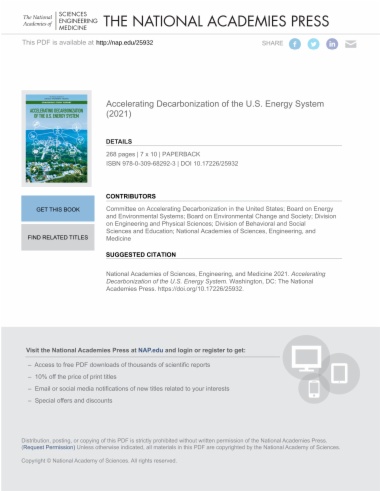

The world is transforming its energy system from one dominated by fossil fuel combustion to one with net-zero emissions of carbon dioxide (CO2), the primary anthropogenic greenhouse gas. This energy transition is critical to mitigating climate change, protecting human health, and revitalizing the U.S. economy. To help policymakers, businesses, communities, and the public better understand what a net-zero transition would mean for the United States, the National Academies of Sciences, Engineering and Medicine convened a committee of experts to investigate how the U.S. could best decarbonize its transportation, electricity, buildings, and industrial sectors.
This report, Accelerating Decarbonization of the United States Energy System, identifies key technological and socio-economic goals that must be achieved to put the United States on the path to reach net-zero carbon emissions by 2050. The report presents a policy blueprint outlining critical near-term actions for the first decade (2021-2030) of this 30-year effort, including ways to support communities that will be most impacted by the transition.